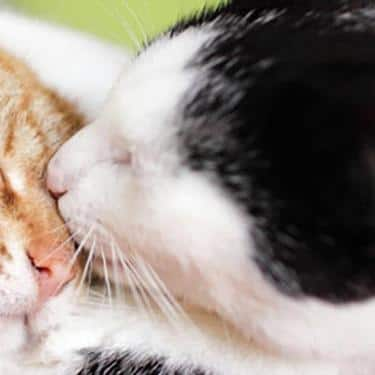
-
Find the right food for your pet
Take this quiz to see which food may be the best for your furry friend.
Find the right food for your pet
Take this quiz to see which food may be the best for your furry friend.
Featured products
 Adult Small Bites Lamb Meal & Brown Rice Recipe Dog Food
Adult Small Bites Lamb Meal & Brown Rice Recipe Dog FoodSupports lean muscle, for dogs who prefer smaller kibble
Shop Now Puppy Lamb Meal & Brown Rice Recipe
Puppy Lamb Meal & Brown Rice RecipeVital nutrients to support 5 essential building blocks for lifelong health
Shop Now Adult Small Bites Chicken & Barley Recipe Dog Food
Adult Small Bites Chicken & Barley Recipe Dog FoodSupports lean muscle for dogs who prefer smaller kibble
Shop NowFeatured products
 Kitten Healthy Cuisine Tender Chicken & Rice Medley
Kitten Healthy Cuisine Tender Chicken & Rice MedleyDelicious tender chicken and rice in a mouthwatering sauce with precisely balanced nutrition to support 5 essential building blocks for lifelong health
Shop Now Adult Indoor Chicken Recipe Cat Food
Adult Indoor Chicken Recipe Cat FoodSupports energy level and beautiful fur in indoor cats
Shop Now Kitten Chicken Recipe
Kitten Chicken RecipeVital nutrients to support 5 essential building blocks for lifelong health
Shop Now -
Dog
- Dog Tips & Articles
-
Health Category
- Weight
- Food & Environmental Sensitivities
- Urinary
- Digestive
- Joint
- Kidney
-
Life Stage
- Puppy Nutrition
- Adult Nutrition
Cat
- Cat Tips & Articles
-
Health Category
- Weight
- Skin & Food Sensitivities
- Urinary
- Digestive
- Kidney
-
Life Stage
- Adult Nutrition
Featured articles
 The Incredible Science Behind Your Pet's Microbiome
The Incredible Science Behind Your Pet's MicrobiomeLearn what a pet's microbiome is, how it contributes to your pet's gut & overall health, and why nutrition is important in maintaining healthy microbiomes.
Read More Water
WaterDiscover why water is the most important nutrient for your dog or cat to live a healthy life. Find out how much water your pet should consume each day.
Read More Pet Food Storage Tips
Pet Food Storage TipsDiscover how and where to store your dry, as well as canned, dog and cat food. Learn how to find the "best before" dates on all Hill's pet food packaging.
Read More -
Find the right food for your pet
Find the right food for your pet

When you adopt a cat, you don't just gain a best friend; you could also be saving a life. About 3.4 million cats live in shelters waiting for adoption across the US, as reported by the American Society for the Prevention of Cruelty to Animals (ASPCA). With so many wonderful felines to choose from, getting a cat from a local animal shelter makes so much sense. Here's why:
Types of Animal Shelters
You have several options when looking for adopt your kitty.
- Local town shelters. These centers are run by municipal communities and staffed by animal control officers who pick up stray and lost animals who clearly need care. Most have very low fees to adopt a cat, but do not provide veterinary services such as vaccinations, spaying, or neutering.
- Local animal shelters. Most animal shelters house kitties either in separate enclosures communal cat habitats until adoption to ensure their well-being. Some locations provide basic vaccinations for cats—such as a rabies vaccination—as well as spaying and neutering. If they don't provide the latter service, some shelters often have a list of local veterinarians who help kitty for a nominal fee.
- Specialized cat shelters. Specialized cat shelters may take only older cats, cats whose owners have died, or cats with special needs. Some are breed-specific as well.
Each facility sets its own adoption guidelines and fees, so check with your local shelter for more information on how to adopt a cat and what you need to do before you bring them home.
Are Shelter Cats Problem Cats?
Not even close! A cat often ends up at animal shelters through no fault of their own. In fact, the most common reasons involve their former parents. They may be moving to new homes where kitty isn't allowed or going through lifestyle changes, such as a new baby or moving in with a partner who is allergic to cats. Illness or passing of a pet parent is another unfortunate reason a cat may wind up in a shelter.
Most of the time, it's through simply unlucky circumstances. Whatever the case, most shelters gladly reveal the reason why a particular cat is up for adoption and can give advice on how to best integrate a potential pet into your home.
Why Adopt from a Shelter?
Cats in need of a new home are often the perfect choice for first-time pet parents. Most of these cats have already lived inside, and therefore know the routines of a household like yours. Animal shelters provide a wide range of kitties to choose from, as well, allowing you to find a shorthair, tabby cat, male, female—whatever attributes your heart desires.
Many shelters also take note of the temperament of resident cats and keep a record of information for owner-surrendered animals. They then use this information to help you find your best match. Knowing what to expect, or at least what a given cat has been exposed to in the past, is another great benefit of adopting an adult cat from an animal shelter.
Healthy but Curious
When looking for a great cat at your local animal shelter, a healthy cat should be your number-one priority. Healthy cats have clear eyes and noses without excessive sneezing, coughing, or mucous discharges in otherwise clean environments. Their coats should look groomed and generally free of mats, too.
Don't let this ideal keep you from falling for a curious cat, though! If they're awake when you're visiting the shelter, they should be daring enough to approach the ends of the cage and interact with you. A cat with this sense of adventure is one who may adjust more easily to living with your family.
The Adoption Process
Each shelter has a different process for adopting cats, so check the organization's website (or call them) for specifics before you go. The following steps are pretty common parts of the process:
- Private shelters often require forms that include a vet's name, phone number, and references. Look for a local vet even before you contact the shelter so you have this information on hand.
- Often, available cats are featured on the shelter's website. If you see someone you like, call ahead to make sure they are still living there.
- Make an appointment to visit the shelter and meet the cat.
- Bring your driver's license or similar proof of your address and residency. You'll also need to provide cash or personal checks to pay the adoption fee.
- Some shelters offer a simple cardboard carrier so that you can bring your kitty home, but if you have your own cat carrier—usually around $25 each—bring it along. Cats should always be allowed to ride in a sturdy carrier to keep them safe..
- Some shelters request a twenty-four hour waiting period, so you may not be able to bring the cathome right away. Keep in mind that this gives you time to think about your decision, and gives the shelter time to conduct a background check that confirms you're the gentle, reliable owner you know you are.
- You may be asked to complete an adoption contract, which stipulates the conditions under which you can keep your cat. For example, you may be required to have the cat spayed or neutered, and kept up-to-date on vaccinations. You may also be asked to bring your cat back to the shelter if you need to rehome them for any reason.
- Finally, bring your cat home. Have a litter box, food, and water bowl set up in just one room; it's helpful to keep them contained to one space of the house for the first day or two until they get used to the environment. Provide plenty of toys and places to hide, such as a cardboard box or soft-sided sleeping cube.


Tasty Tips
Know the Costs Beforehand
Getting a cat is a lifetime commitment. As a parent and guardian, you'll be responsible for your cat’swell-being for the rest of their life. Knowing the costs and time commitments for cat ownership is an important part of the adoption process.
Adoption fees are your primary initial investment, and range from $10 at a town animal shelter to $100 or more from a private animal shelter that houses cats who've already been spayed or neutered. Spaying or neutering does, however, cost anywhere from $75 to $200 per cat, depending on where you live. You cat will also need an annual veterinary checkup and routine vaccinations. Typical costs are about $150 per year.
Cats groom themselves, but trimming their claws regularly helps keep them from scratching you or your floors (you know how much they love digging into carpet). To clip their claws at home, it's best if you have someone to help you hold them while you take trimming duty. Groomers usually charge $10 and up, depending on the cat and location. If they are a long-haired kitty, they may need regular grooming appointments with a professional to keep thecoats soft and tangle-free.
The Day-to-Day
Don't forget a litter box, bowls, and toys. Expect to pay between $10 and $25 for a litter box, food bowl, and a few simple play items. A brush is also helpful to keep your kitty's coat clean. As far as litter itself, plain clay or dustless products can cost at least $5 per bag. Depending on how often you change the litterbox, expect to pay $10 or more per month.
Good-quality cat food provides all of the nutrients your cat needs to stay healthy.. Cat foods such as Science Diet are available at your pet's veterinarian or a specialty retailer. Expect to pay anywhere from $10 on up per month for cat food.
What about a time commitment? You don't need to walk your cat, but you should look forward to spending quality time each day with your adorable friend. Grooming, brushing, feeding, and simply enjoying your time with them is essential to creating that special bond with your newest family member.
Cats offer companionship, affection, and enjoyment—and ask so little in return. So, adopt a cat. As they say, this could be the start of a beautiful friendship.


Jeanne Grunert is a book author, blogger and freelance writer from Virginia. She cares for six rescued cats and a rescued dog named Shadow on her 17 acre farm in Virginia.
Related products

Delicious roasted chicken and rice in a mouthwatering sauce

Vital nutrients to support 5 essential building blocks for lifelong health

Delicious tender chicken and rice in a mouthwatering sauce with precisely balanced nutrition to support 5 essential building blocks for lifelong health

Supports energy level and beautiful fur in indoor cats
Related articles

Brushing your cat's teeth is just as important as brushing your own. Learn signs or oral health problems in your cat and how to avoid them.

Discover how to identify cat sensitive skin and what you can do to help your cat thrive from head to paw.

Learn the different factors that might be contributing to your cat's weight gain, and how bigger doesn't always mean better.

What is the best food for an overweight cat? Learn all about weight control food for cats, including what's in it and how it works.

Put your cat on a diet without them knowing
Our low calorie formula helps you control your cat's weight. It's packed with high-quality protein for building lean muscles, and made with purposeful ingredients for a flavorful, nutritious meal. Clinically proven antioxidants, Vitamin C+E, help promote a healthy immune system.
Put your cat on a diet without them knowing
Our low calorie formula helps you control your cat's weight. It's packed with high-quality protein for building lean muscles, and made with purposeful ingredients for a flavorful, nutritious meal. Clinically proven antioxidants, Vitamin C+E, help promote a healthy immune system.

